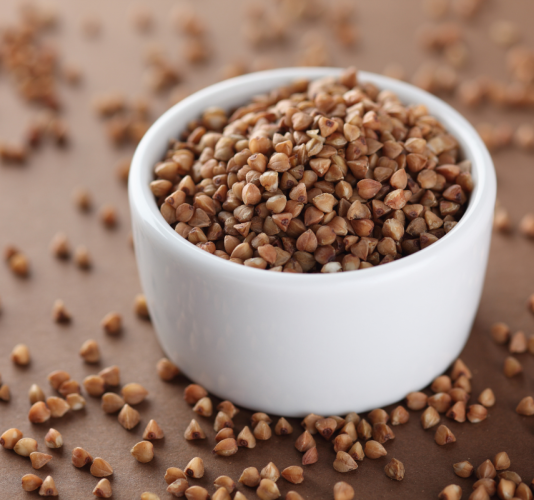News
19.03.2025 - Foods

Buckwheat – a new allergen?
The pseudocereal buckwheat is currently enjoying great popularity. Nevertheless, one should be cautious, as buckwheat can cause allergic reactions in sensitive individuals.
Buckwheat, an increasingly popular gluten-free grain alternative, is known for its health benefits, as it contains more valuable ingredients than traditional grains. Despite these benefits, it can cause allergic reactions in sensitive individuals, ranging from mild symptoms such as itching and gastrointestinal discomfort to severe, potentially life-threatening anaphylaxis. These allergies are particularly common in Asia, where buckwheat is a widely consumed food. People with a latex or coconut allergy may develop a cross-allergy. Allergic reactions can be triggered by consuming buckwheat as well as by inhaling buckwheat flour.
In other countries, especially in Russia, buckwheat is a popular food and is eaten in many forms such as semolina, pancakes, noodles, porridge, or soups. In Germany, despite its versatile uses, buckwheat is less frequently on the table. In Eastern Europe, it is a staple food, and in Asian countries like Japan, it is often used to make soup. In addition, beer and whiskey are also made from buckwheat. Despite its positive properties, allergy sufferers should be careful, as buckwheat can cause allergic reactions in them.
In our Tentamus laboratories, we regularly conduct tests for allergens. We provide you with fast and reliable results and are happy to advise you on all matters regarding product safety. Our customer advisors are available to assist you with any questions.
